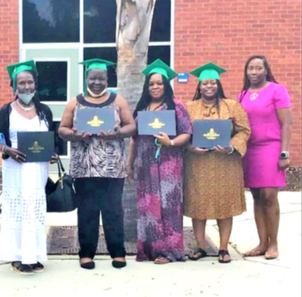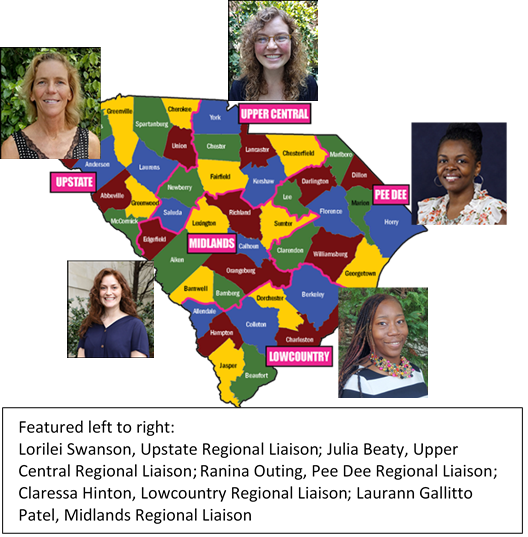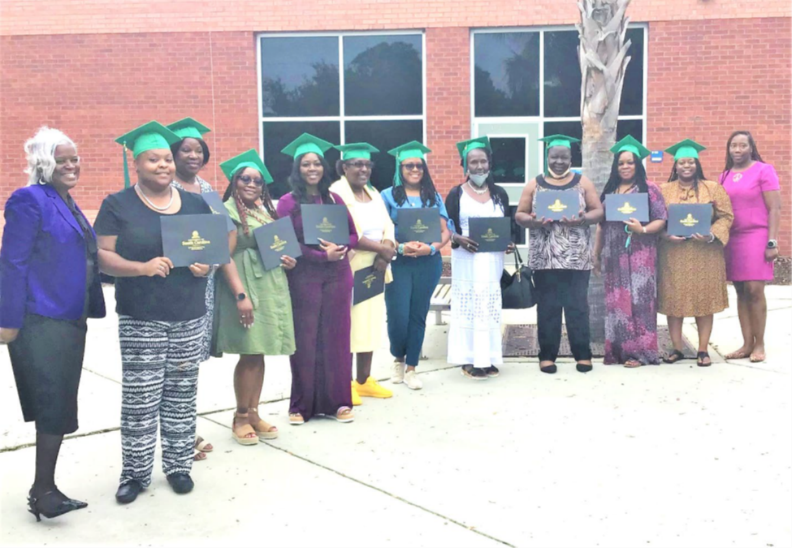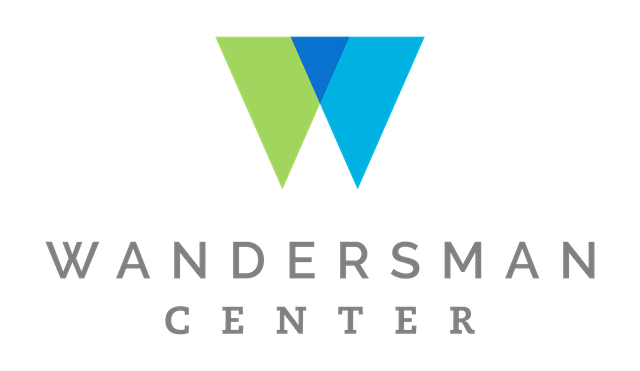 The onset of the COVID-19 pandemic in early 2020 hit schools hard. School closures and social distancing mandates resulted in a dramatic change, literally overnight, in the way that schools provided students with an education. Since then, the list of questions on the minds of school personnel as well as students and their families has certainly grown well beyond the concern about what period math will be. Questions such as these might come to mind: “Will we start the school year with all teachers and students in the physical classroom on the school campus? If so, will we need to switch to a virtual platform at some point in the year? Will that switch be at a moment’s notice like it was before?” And, even such thoughts as these: “Will there even be a prom or graduation ceremony this year?” or “I wonder what happened to that student whose family I wasn’t able to connect with during the pandemic. I hope they are okay.”  Family Engagement: From “Nice” to “Necessary” Now more than ever, there is a critical need for families and schools to partner in a meaningful and effective way to support successful student learning and development. Parent/family engagement in education has always been important in the success of student outcomes, and it has been addressed in federal and state education laws and policies for decades (Title I of the Elementary and Secondary Education Act of 1965 and subsequent reauthorizations, such as No Child Left Behind, Every Student Succeeds Acts, and Family Engagement in Education Act of 2015). It has been well-established as an effective evidence-based practice that has a positive impact on student educational outcomes, teacher-student relationships, parent-teacher relationships, and the school environment (Henderson & Mapp, 2002). The reality is that prior to the pandemic, family engagement in education was often viewed as something “nice when it happens,” but often got lost in the shuffle amidst other competing mandates and daily demands. The pandemic resulted in an abrupt, dramatic change in the very essence of how education was allowed to be implemented – not in person and not in classrooms, but remotely via distance technology. Suddenly, family engagement in education went from “nice” to “necessary.” In many cases, teachers became dependent on students’ family members in different ways from anything previously experienced, such as being able to interface with students via technology to have the opportunity to provide educational instruction. Teachers have always been dependent on parents for things such as getting their children on the bus or driving them to the school building. What changed was the ability of parents and teachers to carry out their traditional roles independently, and more collaboration was required to ensure that learning was taking place. Parents were faced with needing to know more about what their students were supposed to be learning. Teachers needed help from parents to ensure that children learning virtually were present, had supports such as appropriate learning environments, stayed engaged, and were able to work through problems. For many teachers, the importance of maintaining trusting relationships with families became an immediate reality. Those teachers who had developed that trust were the most successful in maintaining communication during the pandemic. Like the rest of the world, the education system as we have known it for decades, experienced a complete and sudden transformation for which they were not prepared, and why would they be? Who could have even known to be prepared for such a life-changing, global disruption in education – along with every other fundamental aspect of life? NO ONE! Time Moves On Time did not stand still. Students still needed to be educated. This meant that schools and teachers had to quickly figure out how to teach their students, and parents needed just as quickly to figure out how to meaningfully connect – or partner – with their children’s teachers. Never before were parents and teachers so acutely aware of the need to work together in order to equip students with the educational skills that they need to become college and career, yea, “life” ready. Even though many schools have reopened, and many students have returned to school campuses, things “look different” from how they were before. School is experienced differently for students, teachers, and parents/families. Students – who do not have decades of experience with schools – are learning that school is not a static entity. Parents and teachers – who at least have an “institutional knowledge” with the education system, both having experienced “school as we knew it” for so many years – suddenly have no experience with this new way of operating in the ever-changing educational infrastructure that could look completely different tomorrow or next month or next year from the way it does at any given moment. That’s a level of discomfort for everyone – not knowing for how long things will be the same, how suddenly the next change will occur, and even what that change will look like. Talk about a complete disruption in the social and emotional stability of ALL involved! NOT a “New Normal” People talk about having to get used to the “new normal” when school starts this fall and why it is so hard to “adjust.” That’s because they are trying to adjust to the wrong thing. A “new normal” implies that the disruptive event has ended and that what life in the aftermath looks like is the way it will be consistently from now on. We have not reached a “new normal” in this case, however, because COVID-19 doesn’t have a defined start and end date. Think about a disastrous weather event such as a tornado, hurricane, an explosion or even the death of a loved one. While the devastation certainly can be horrific, a tornado often ends within minutes or even seconds of its start. With this pandemic, however, the virus is still in existence, and just as any other virus, it will mutate to survive and infect more people. Thus, the possibility of additional waves of the pandemic continues to exist. Further, the effects on our daily lives and routines, such as school attendance, are still in flux. Mandates and recommendations for closures, openings, partial re-openings, personal protective equipment (e.g., face coverings/masks), and social distancing are inconsistent and can change from day to day and at a moment’s notice. Uncertainty and a lack of predictability is a great threat to one’s social and emotional health and well-being (Bar-Anan et al., 2009). Fortunately, the Readiness, Resilience, and Recovery Tool, developed by the Wandersman Center (Kolodny‑Goetz, et al, 2021), discusses how to understand and address changes in readiness as a result of such major disruptions. Even with difficult or undesirable circumstances, if they are predictable, at least people can learn how to adapt. With unpredictability, however, the only thing that is predictable is the unpredictability itself. Thus, it isn’t a “new normal”; it’s just “another day.” This same unpredictability continues to exist in the realm of education. Students, teachers, school administrators, bus drivers, cafeteria workers, maintenance staff, and all other school personnel, as well as parents/families, all operate on a day-to-day basis trying to teach, learn, and support while being prepared for the unpredictable potential changes that can come at a moment’s notice. Implications for Family Engagement in Education What does all this change and uncertainty mean for students’ education, and more specifically, what does it mean for the critical role of families and schools partnering for active family engagement in education? There is a proverbial silver lining to this cloud which is the disruption in education as we have known it for decades. Parents and schools are learning how to truly partner with each other to engage in children’s education meaningfully and successfully. Teachers and administrators are figuring out how to enter into and maintain an active partnership with parents/families and parents/families are learning how to partner with schools and doing whatever it takes to effectively engage in their children’s education. What does family engagement in education mean, and what does it look like from a true family-school partnership approach? Many committed, persistent, seasoned, and highly respected individuals have been beating this drum for a number of years. Despite increased attention to family engagement in education and pockets of success here and there, they continue to find themselves in the role of having to advocate for family-school partnerships and convincing schools and families that engaging in a partnership approach is really the best way to support student educational outcomes. Thanks to the pandemic that served as an accelerant, schools and families, for the most part, have been “convinced” of the importance of partnerships within educational settings, and now find themselves in the position of wanting to know “how to do it.” Family Engagement in Education from a Family-School Partnership Approach Family engagement really means having parents/families and school personnel connected, communicating on a regular basis, with their efforts aligned so that families can support their children inside and outside of the classroom, and educators can deliver instruction in the most effective manner for their students. It is essential that trust is established and maintained between home and school and that home and school demonstrate respect for each other. When home and school focus on a common goal – for example, student learning – then, together with reciprocal trust and mutual respect, they can engage in multi-directional communication, listening to each other and contributing their knowledge and respective expertise on any given student. To whom can we look for guidance for putting these thoughts into practice? Fortunately, there are several leaders nationally who have been connecting families and schools in true partnership for many years. One example is the revered Dr. Karen Mapp whose Dual Capacity-Building Framework for Family-School Partnerships (Version 2; Mapp & Bergman, 2019) is a landmark in the partnership arena (see Mapp & Bergman, 2021, for a recent example of applying this framework in today’s educational reality). This framework emphasizes the importance of using family engagement strategies, policies and programs that are co-developed by, and build on the existing assets of, both schools and families. Through this framework, multiple roles and voices are represented by parents/families and school personnel. Each person is seen as having a unique set of expertise and, thus, a unique and valuable contribution to family engagement in education through these partnerships between home and school. Another landmark is Dr. Joyce Epstein’s Framework of Six Types of Involvement for Comprehensive Programs of Partnership and Sample Practices (Epstein et al., 2019). In brief, Epstein’s framework identifies six types of parent involvement as parenting, communicating, volunteering, learning at home, decision making, and collaborating with the community. While these are ways that parents/families can demonstrate involvement, they are meant to be a two-way partnership and co-developed between the home and school, rather than parents/families simply responding to what schools have pre-determined for family engagement. The Carolina Family Engagement Center The emphasis on the relationships between home and school is so important, federal funds have been allocated to support such efforts. In fact, our own state of South Carolina is home to one of 12 nationally funded state-wide family engagement centers from the U.S. Department of Education. The Carolina Family Engagement Center (CFEC) is a multi-year, multi-million-dollar Center funded by the U.S. Department of Education (2018-2023) and housed in the South Carolina School Improvement Council in the College of Education at the University of South Carolina (UofSC). In partnership with the South Carolina Department of Education (SCDE), CFEC provides capacity-building training and technical assistance in family engagement directly to families, schools, districts, and local communities across South Carolina. In addition to the CFEC Leadership team, five dedicated CFEC Regional Family Engagement Liaisons serve as the core of the work and activities of CFEC. CFEC is supported by the expertise of seven content area specialists, housed in the UofSC College of Education. CFEC also builds statewide infrastructure to support family engagement by serving as a hub that connects families and schools with CFEC community partners and others who provide a broad range of services and resources addressing students’ academic and developmental needs. CFEC assists schools and communities to engage families from cradle to career by facilitating the growth of new networks between early childhood and K-12 systems. CFEC is guided by the multiple frameworks for family engagement mentioned above and SCDE’s South Carolina Family Engagement K-12 Framework. Partnerships are key to the function and operation of CFEC. The Wandersman Center has extensive expertise and experience in working together with a wide variety of organizations and entities that are focused on realizing transformational improvement. Wandersman Center is a key partner with CFEC through the use of Getting To Outcomes® (GTO), an evidence-based accountability process to engaging stakeholder teams, which include parents/families, schools, and community members in strategic goal-setting, implementation and ongoing monitoring, and continuous improvement. CFEC utilizes the implementation science framework of GTO to provide schools and families with a road map for planning, implementing, and evaluating their family engagement work. GTO prompts users to assess needs, identify specific goals and outcomes, utilize evidence-based practices with consideration of fit and capacity, plan and implement with quality, engage in ongoing evaluation and continuous improvement, and take steps to sustain successful activities. The GTO process is integrated throughout CFEC, including at the school and classroom levels, as well as to support community partner collaboration. GTO is a flexible and adaptive process which has been critical in continuing to support family engagement in education through the family-school partnership approach during this pandemic. Another important consideration, especially during the pandemic, has been understanding the readiness that schools and families have in their partnerships. In particular, we have collaborated to identify the strengths and challenges around the readiness motivation and capacity factors that are likely to impact successful partnerships. As school-family partnerships changed from being nice to necessary, teachers and families had to adapt. We saw several examples of this through a variety of outlets (see the second half of our video session from the 2021 Southeastern School Behavioral Health Conference starting with “Adventures from the [Virtual] Field: A Panel Discussion with the CFEC Regional Family Engagement Liaisons” for even more examples than are provided in this blog). One example was seen when School Improvement Council (SIC) meetings in the Upstate region of South Carolina quickly adapted to the virtual platform because they were determined to maintain their active engagement. SICs are comprised of multiple voices of stakeholders at each school that, especially with their partnership with CFEC, discuss, plan, implement and monitor family engagement in education. The SIC at Belton Honea Path High School was trained by Upstate Regional Liaison, Lorilei Swanson, in the GTO process. This process helped the SIC identify, implement, and evaluate a family engagement goal during school reopening in the 2020-21 school year. Principal Mary Boarst was concerned about the high number of failing grades for students who chose to attend school virtually. Stakeholder team members collaborated on several strategies to send students and family members the message that grades counted this year as compared to grade forgiveness policies implemented during school closings in the spring of 2020. They also wanted students and families to know that the risk for COVID-19 in the school setting was much safer than in the surrounding community due to the strict safety procedures the school had in place. The SIC developed a social media campaign to get these messages out to all students and families. The administrative team also made phone calls and home visits to send this message to all families who had students with failing grades in their virtual classes. Another example was seen in the CFEC Teacher Partner Program in which teachers throughout the state work closely with CFEC Regional Family Engagement Liaisons to enhance family engagement in education with families of the students in their classrooms. For their classroom family engagement project, Jackson Creek Elementary teachers Sra. Herron (Pre-K) and Ms. McDonald (first grade) collaborated with the School Reading Coach/Interventionist to create a series of monthly virtual literacy workshops using the Google Classroom platform with the goals of growing student reading and literacy skills and parent/caregiver knowledge of and confidence in supporting student learning. Working together, educators and parents, including those from Spanish-speaking families, communicated weekly by using WhatsApp translation and voice recording features to troubleshoot, ask/answer questions, clarify instructions, share example videos and photos, and collect feedback on prepared literacy activity and material packets provided to students for at-home practice. Pre- and post-surveys indicated that parent confidence in helping their student(s) learn how to read grew and all parents reported a clearer understanding of decoding, comprehension, and vocabulary skills, which aligned with improvements in student reading level, accuracy, and comprehension from beginning and end of year assessments. A third example was seen in the fact that the inaugural cohort for the CFEC Parent Leadership Program was set to take place in person starting in September 2020; however, this program quickly had to switch to the virtual platform. Led by Dr. Yasha Becton in the College of Education at the University of South Carolina and co-facilitated by Lowcountry Regional Liaison, Ms. Claressa Hinton Thompson, they were able to meet this challenge, which amazingly resulted in only a one-month delay from the original starting date. Parents and facilitators met monthly during the 2020-2021 school year, and 12 parents recently graduated from this program. Transformation in Family Engagement in Education – Let this be the “New Normal” Taking a family-school partnership approach to family engagement in education, by incorporating the tenets described above, means that family engagement in education is transformed to focusing on the educational outcomes rather than solely focusing on the educational process. A focus on the educational process can be characterized this way. In the traditional approach, the teacher is present in the classroom and teaches. The students show up for class and have the opportunity to learn. The parents/families do their best to support their children in their educational growth and development. Teachers and parents carry out their roles independently of each other, and IF the educational outcomes happen, that’s a bonus. No… The new way of doing business is that the educational outcomes need to be happening, and at any given point in time, the parents/families and the teachers know that progress is being made. If progress isn’t being made, then families and schools have such a well-established partnership, they immediately recognize the first sign when any student’s performance is less than their absolute best, and both parents/families and teachers collaborate with each other as soon as any signs of behavioral or social and emotional problems begin to appear. It is an equitable, asset-based approach in which the school and families are both seen as co-creators who have valuable knowledge and skills to contribute, rather than the model in which the teacher’s expertise is valued over the parents’ knowledge and skills. Thus, there are overlapping spheres of partnership in family, school, and community. Rather than pointing fingers and playing the blame game, parents/families and schools work together as partners to strategize for getting the student the help and support that they need to be healthy and productive – on all fronts – as a whole child, rather than a compilation of fragmented parts across home and school contexts (e.g., academic achievement, social and emotional well-being, behavioral performance). Final Thoughts
With the start of another school year upon us, this is the perfect opportunity to take advantage of this fresh start and new beginning to make this the “best year ever” in terms of successful family-school partnerships for effective family engagement in education. Learning is life long and takes advantage of lessons learned. We have learned a lot from the pandemic, and among these, is the necessity of family-school partnerships for the education and well-being of our children. This article was written by Gina M. Kunz, PhD, of the Carolina Family Engagement Center. For additional information, resources, and special initiatives for families of focus related to family engagement in education, please visit the CFEC website at https://cfec.sc.gov. References: Bar-Anan, Y., Wilson, T. D. Wilson, & Gilbert, D. T. (2009). The feeling of uncertainty intensifies affective reactions. Emotion 9(1), 123-127. http://nrs.harvard.edu/urn-3:HUL.InstRepos:3153298 Epstein, J. L., Sanders, M. G., Sheldon, S. B., Simon, B. S., Salinas, K. C., Jansorn, N. R., Van Voorhis, F. L., Martin, C. S., Thomas, B. G., Greenfeld, M. D., Hutchins, D. J., & Williams, K. J. (2019). School, Family, and Community Partnerships: Your Handbook for Action. Fourth edition. Thousand Oaks, CA: Corwin Press. Henderson, A. T. & Mapp, K. L. (2002). A new wave of evidence: The impact of school, family, and community connections on student achievement. National Center for Family and Community Connections with Schools, Southwest Educational Development Laboratory. A New Wave of Evidence: The Impact of School, Family, and Community Connections on Student Achievement | Reading Rockets Kolodny-Goetz, J., Hamm, D.W., Cook, B. S., Wandersman, A. (2021). The Readiness, Resilience and Recovery Tool: An Emerging Approach to Enhance Readiness Amidst Disruption. Glob Implement Res Appl. https://doi.org/10.1007/s43477-021-00011-6 Mapp, K. L. & Bergman, E. (2019). Dual capacity-building framework for family-school partnerships (Version 2). Retrieved from: www.dualcapacity.org Mapp, K. L. & Bergman, R. (2021). Embracing a new normal: Toward a more liberatory approach to family engagement. Carnegie Corporation. https://www.carnegie.org/publications/embracing-new-normal-toward-more-liberatory-approach-family-engagement
2 Comments
The emphasis on meaningful partnerships between families and schools is paramount, especially in today's ever-changing educational landscape. Collaborative efforts between parents and educators are essential for supporting successful student learning and development. This rings true for <a href="https://ezyschooling.com/admissions/school-admission-in-horamavu-bangalore">schools in horamavu bangalore</a> , where fostering strong relationships between families and the school community can significantly enhance the educational experience for students. By prioritizing parent/family engagement, schools in Horamavu can create a supportive ecosystem that empowers students to thrive academically, socially, and emotionally. The recognition of this critical need underscores the importance of building bridges between home and school to ensure holistic student success. Looking forward to witnessing the positive impact of these partnerships on educational outcomes in Horamavu and beyond.
Reply
Leave a Reply. |
Categories
All
Archives
September 2023
|


 RSS Feed
RSS Feed
